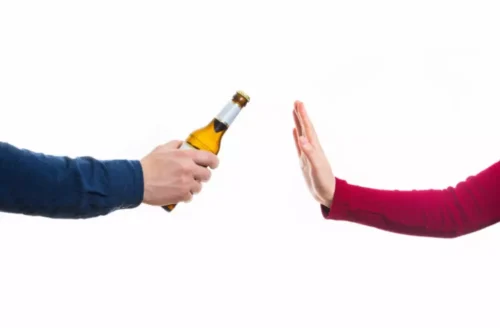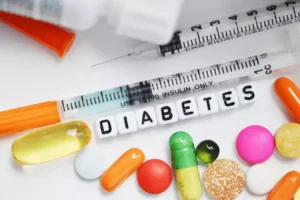Jessica Plonchak serves as Executive Clinical Director at ChoicePoint. She has a Bachelor’s degree in Psychology and a Master’s degree in Social Work. She is a Licensed Clinical Alcohol and Drug Counselor (LCADC). With 17 years of relevant experience, she has helped several clients in their journey to recovery from addiction.
- But the problem arises when a person starts excessive drinking; the rate of dopamine produced naturally by our body begins to decline.
- The fifth edition (DSM-5) was published in 2013 and changed the terminology from substance abuse, addiction, and alcoholism to Substance Use Disorder (SUD), which encompasses both drugs and alcohol.
- Treatment may involve an inpatient or outpatient program depending on each person’s situation.
What are the effects of addictive substances?
Many people with alcohol use disorder hesitate to get treatment because they don’t recognize that they have a problem. An intervention from loved ones can help some people recognize and accept that they need professional help. If you’re concerned about someone who drinks too much, ask a professional experienced in alcohol treatment for advice on how to approach that person. However, with both alcohol abuse and alcoholism, these feelings are less effective over time as a person’s drinking habits increase. Drug abuse refers to the use of drugs only (not alcohol)—illegal drugs, prescription drugs, over-the-counter drugs—in excessive amounts.
The Impacts of Drug and Alcohol Addictions
It produces a feeling of pleasure and euphoria, urging the user to consume alcohol again. Online assessment tests are a quick way to know if you are suffering from addiction. ChoicePoint has a free self-assessment addiction quiz to help you determine the severity and level of addiction.
Physical Symptoms and Health Problems
- In individual therapy, individuals work with a therapist to identify and address the underlying causes of addiction and develop coping strategies to prevent relapse.
- Our addiction treatment center at Fair Lawn location in Bergen County, New Jersey, has a dedicated team of healthcare professionals who can diagnose and treat all kinds of drug and alcohol addiction.
- In 1984, it was approved by the FDA for the treatment of use of drugs such as heroin, morphine, and oxycodone.
- Alcohol is legal for adults over the age of 21 in the United States.
This can create an unhealthy drive to seek more pleasure from the substance and less from more healthy experiences. According to a survey by SAMHSA, over 40% of alcohol users in the United States are classified as binge drinkers and 28% of those binge drinkers are classified as heavy drinkers. In 2019, over 14 million people ages 12 or above had an alcohol use disorder. There are specific ages that make a person more likely to develop a substance use problem. Adolescence is a particularly risky time due to the developing, not-yet-mature brain.
Substances are any type of medication or chemical that has addiction potential. Common examples include alcohol, cocaine, heroin and opioids. alcohol vs drugs Substances target the reward center of your brain and can lead to substance use disorder and life-threatening outcomes if misused.
- Initially, alcohol causes the release of stimulant neurotransmitters, but ultimately, the rate of these neurotransmitters decreases.
- You can abuse and get addicted to the nicotine in cigarettes, just like other drugs.
- Intensive Outpatient or IOP treatment is similar to outpatient treatment.
- Dr. Sinclair’s research has been published in the peer-reviewed journals Alcohol and Alcoholism and the Journal of Clinical Psychopharmacology.
- Even individuals who have successfully completed rehab may still face triggers and cravings that can lead to relapse.
- In these cases, treatment involves gradually tapering off the drug over a set period to reduce withdrawal effects.
- In 2019, over 14 million people ages 12 or above had an alcohol use disorder.
- Even a few episodes of substance misuse can lead to tolerance and dependence (addiction).
- Alcohol addiction is simply a form of the larger category of drug addiction, so they each are intertwined together.
- Someone with an alcohol abuse problem may not experience withdrawal symptoms.
Consider how a social drinker can become intoxicated, get behind the wheel of a car, and quickly turn a pleasurable activity into a tragedy that affects many lives. Occasional drug use, such as misusing an opioid to get high, can have similarly disastrous effects, including impaired driving and overdose. Despite being aware of these harmful outcomes, many people who use drugs continue to take them, which is the nature of addiction. In maintenance therapy, a prescribed medication (like methadone) is substituted for a highly addictive drug (like heroin) to prevent withdrawal and cravings, and as part of a harm-reduction strategy. Regardless of the specific type of substance a person is using, there will be similar signs and symptoms. If you or a loved one is struggling with substance abuse, WebMD Connect to Care Advisors are standing by to help.
Addictive Substances
It is a medical condition that has to be diagnosed and properly treated by doctors. However, there are ways to manage withdrawal symptoms to get a head start at recovery. You have likely https://ecosoberhouse.com/ experienced a relapse because of the withdrawal symptoms. Withdrawal symptoms are physical and mental discomfort you experience during the initial stages of giving up drinking.





Commentaires récents